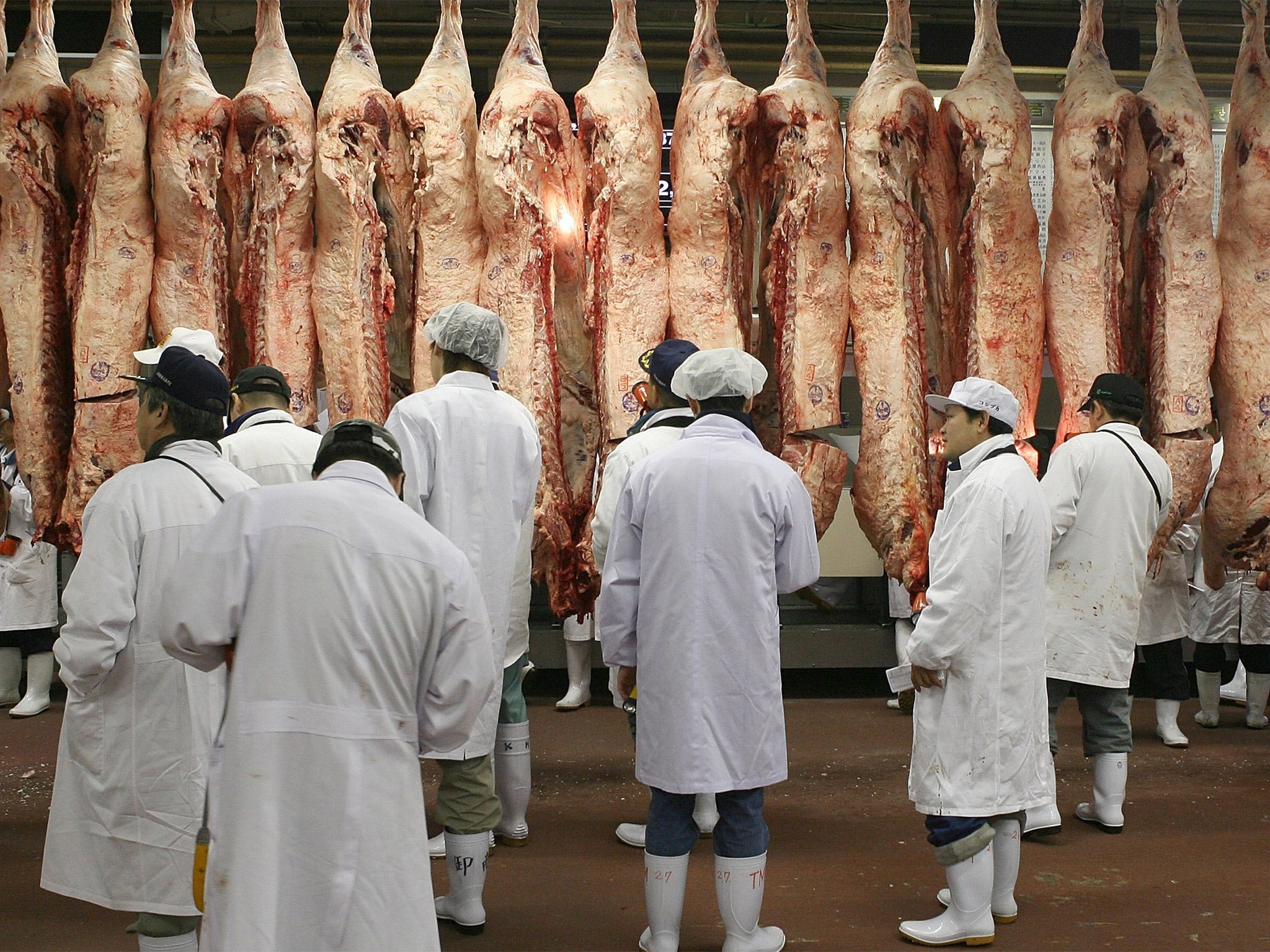Burakumin: Descendants of caste considered 'tainted' face new discrimination in Japan
'Why is this happening to us? Why are we different?'

It was not the kind of letter any mother would want her child to see. “We all hate you,” it read. “No matter how many decades or centuries pass, we will continue to discriminate against you for ever.”
But over recent months, hundreds of residents in a district of Osaka have been opening their mail to discover similar abusive messages – a frightening vestige of a Japanese caste system that was supposed to have been abolished in the 19th century,
“My children asked, ‘Why is this happening to us? Why are we different? Has this been going on for a long time?’” said Masako, a housewife. “I didn’t know what to tell them.”
Another resident of the same block of flats said: “Because I found the letter in my personal post box I thought it must just have been targeted at me, and I was too scared to sleep at night.” A pensioner neighbour, Osamu, added: “It’s made me so scared I don’t even answer the door.”
In fact, similar hate mail was distributed across three regions including two other cities, Kyoto and Kobe. It was sent to 500 households in Osaka alone.
Like others in the Yao district of the Japanese port city, Masako is a descendant of the Burakumin, the caste once solely responsible for performing work connected with death, in jobs such as butchers, undertakers, executioners or grave-diggers. According to Buddhist and Shinto doctrines, these people were considered spiritually “tainted”. For that reason, they were known as eta – extreme filth – and treated as social outcasts. These days, it is also an open secret that the yakuza – Japan’s organised crime gangs – are dominated by the Burakumin, as well as ethnic Koreans.
Now, despite Japan’s veneer of social liberalism, campaigners say that the country’s attitude to what some call hinin, or sub-humans, has not changed – and the wave of letter-writing appears to prove them right. In Osaka, abusive letters have been sent to families living in 25 blocks of flats inhabited exclusively by descendants of the Burakumin, as well as to butchers, meat-trading associations, leather factories and shoe shops.
“Hey you Buraku people, you cow-killers, you bloody eta, you don’t do any proper work,” read the letter that first upset Masako – who asked that her real name not be used.
For decades, it has been government policy not to discuss the problems faced by Japan’s estimated three million Burakumin, most of whom conceal their ancestry because of the stigma. Effectively a taboo subject, caste discrimination is rarely reported on.
But a long-running campaign to raise awareness and end the silence has been given new impetus by the spate of hate mail. Toshio, a retired shoemaker, said: “It’s upsetting that the issue hasn’t improved at all since I was a child.”

Burakumin, meaning “hamlet people”, originally referred to communities made up of supposedly “impure” workers. The lowest of them, the eta, could be killed with impunity by members of the Samurai if they were suspected of having committed a crime.
In the mid-1970s, a Buraku rights group discovered the existence of a 330-page list of Buraku names and community locations that was being sold secretly to employers. The government banned further use of the list – but some companies continued to refer to it long afterwards.
Masahiko Tanigawa, director of the Tokyo branch of the Buraku Liberation and Human Rights Research Institute, said: “Educating people... is fundamental. Human rights education laws have been passed, so there has been some progress, but nowhere near enough.”
But there is no legislation under which the group can take action. “We can’t prosecute these people so we’re trying to get a law passed that will make this type of discrimination illegal,” said Mr Tanigawa.
Even liberal-minded Japanese still admit to strong reservations about the Burakumin. “My parents knew who was Buraku and who wasn’t just from their surname, but people of my generation don’t really think about it,” said Yoshiko Suzuki, 50, a mother of three. “But I would never have married a Burakumin because my parents would have been so opposed to it, and I wouldn’t want my children marrying one of them either.”
Meanwhile, other Japanese fear the possibility of being mistaken for Burakumin. In Tokyo’s Shibaura meat market, slaughterman Yuki Miyazaki, said: “When people ask us about what sort of work we do, we hesitate over how to answer.” He added: “If our children are discriminated against, they don’t have the power to fight back.”
Mr Tanagawa said it was time to address the problem. “We are trying to eliminate these incidents, and when they do happen, local governments must urge citizens to protest strongly and nip the discrimination in the bud.”
Join our commenting forum
Join thought-provoking conversations, follow other Independent readers and see their replies
Comments
Bookmark popover
Removed from bookmarks